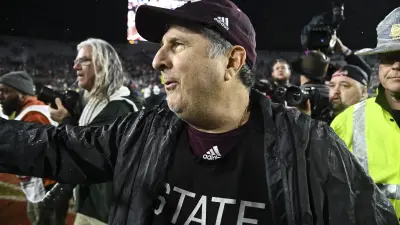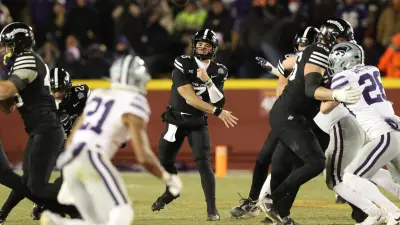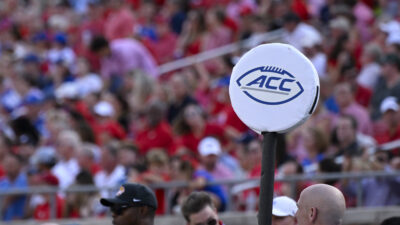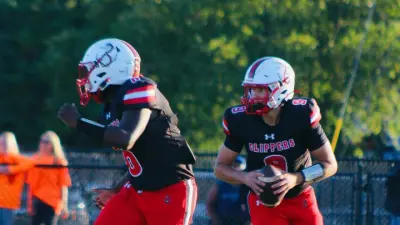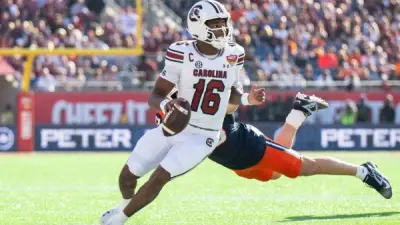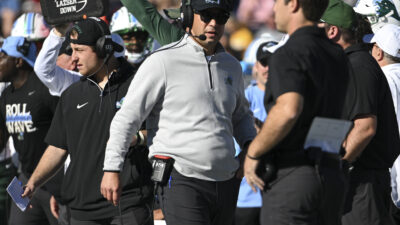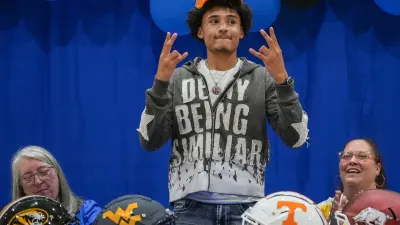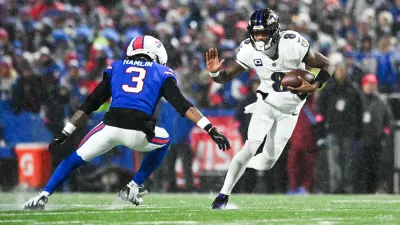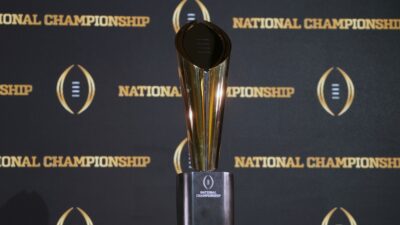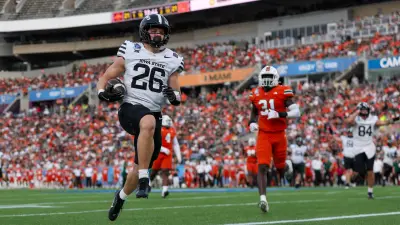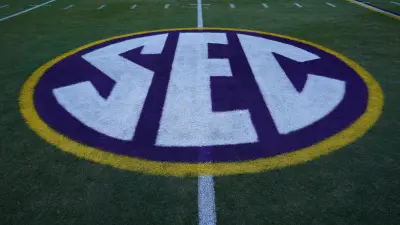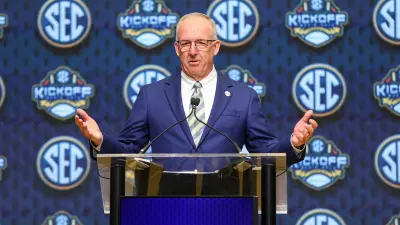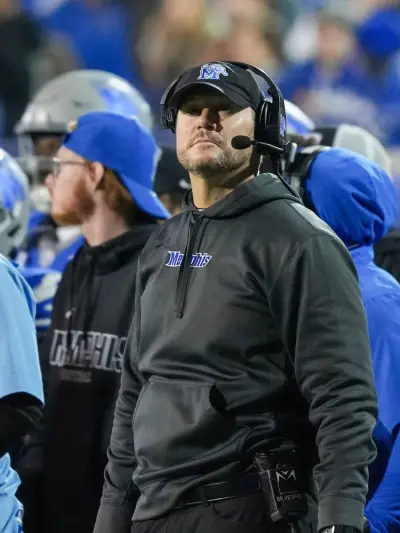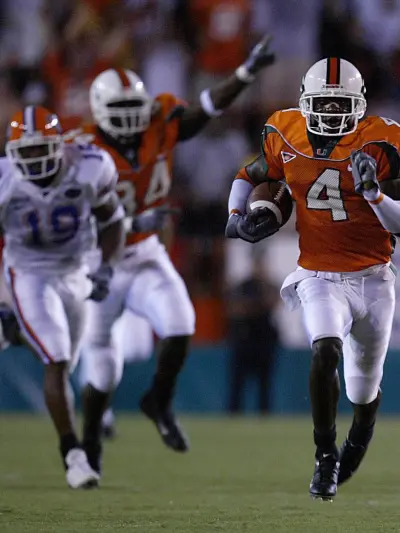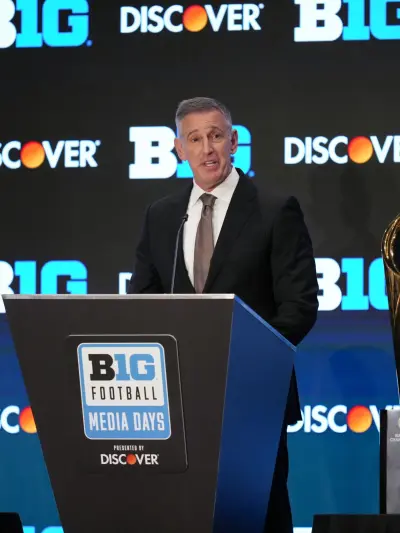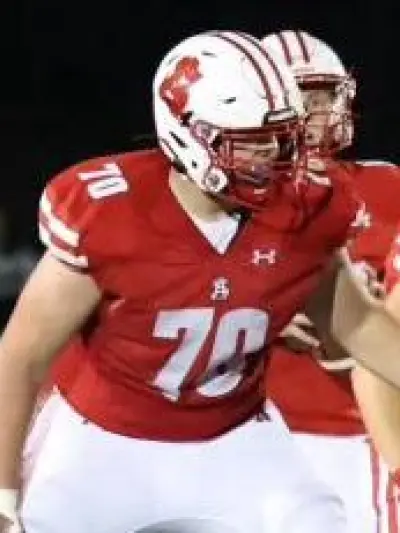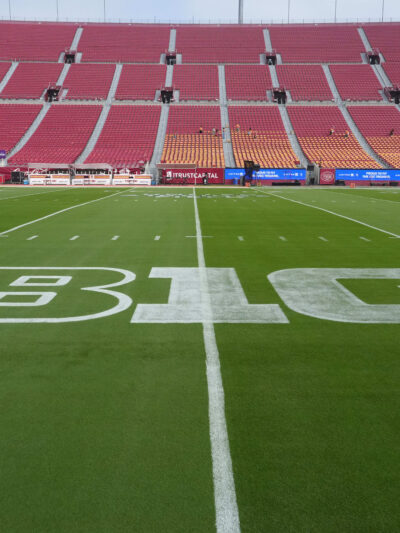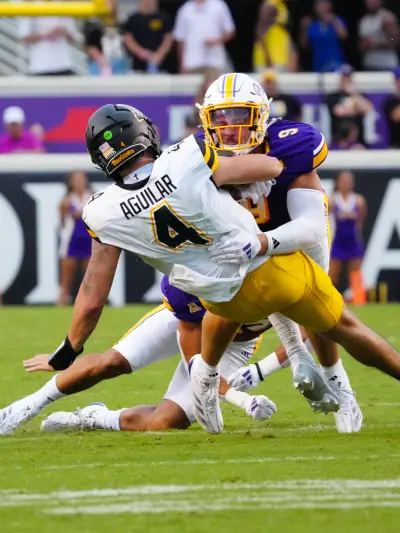Over the years, no matter who your team is, there have been coaches who come along and attract the masses and even garner respect from their rivals. It is rare that it happens, but when it does, coaches seem to attract attention from fans, the media, and social media on some accounts.
So who are the most beloved coaches in the last 30 years? Let’s examine our list.
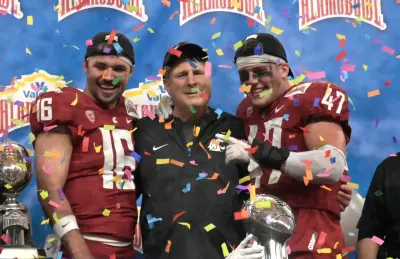
5. Mike Leach
Nicknamed “The Pirate” for his love of pirates who roamed the seas and, in a lot of ways, he embodied the vagabond ways of a pirate in his career.
Leach, along with his mentor Hal Mumme, popularized the Air Raid offense and transformed college football forever. What endeared him to fans everywhere was his intellectual curiosity and his down-to-earth personality where he wasn’t afraid to tackle any subject.
Leach’s press conferences or even halftime interviews would consist of football questions like how his offense was going to attack the defense, but there would always be that odd question he wasn’t afraid to answer, whether it was advice on getting married, his disdain for the existence of candy corn, Bigfoot, and other random topics.
More Sports News
When Leach passed away following Mississippi State’s win in the Egg Bowl against Ole Miss, the love displayed by the college football community was immense, and tributes across the country were everywhere. Fans are now pressuring the College Football Hall of Fame to waive its 60% winning percentage requirement for coaches for Leach to gain entrance.
The impact of Leach will be felt for many years to come in the sport, but for fans and media alike the love for Leach will always be eternal.
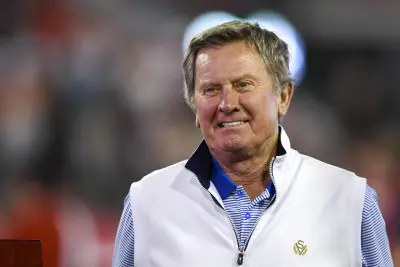
4. Steve Spurrier
In professional wrestling, “The Nature Boy” Ric Flair was once one of the most hated heels in the sport.
The way Flair worked his character and would spew famous one-liners such as “Space Mountain,” “To be the man, you gotta beat the man,” “Stylin’ and Profilin’, Limousine Riding, Jet Flying, Kiss Stealing, Wheelin’ and Dealin’ Son of a Gun,” he endeared himself to wrestling fans and became arguably the sport’s most beloved character.
In college football, Steve Spurrier has a similar arc in his career.
During the 1990’s, it could be very well argued that Spurrier was the most hated coach in college football, as he took his alma mater Florida from a middle power in the SEC to a juggernaut with his new age “Fun and Gun” offense.
While he was beating all of his rivals, he always had a fun dig to get rivals all fired up.
When the Florida State Seminoles had a booster buy more than $6,000 worth of shoes for the players, Spurrier quipped, “You know what F.S.U. stands for? Free Shoes University.”
At Auburn, where a fire destroyed 20 books, “The real tragedy was that 15 hadn’t been colored in yet.”
Florida’s rivalry with Georgia always had Spurrier’s approval to play early in the season by saying, “I don’t know. I sort of always like playing [Georgia] that second game because you could always count on them having two or three key players suspended.”
Finally, Spurrier loved to flame Tennessee and the Citrus Bowl together, whether it was alluding to the fact when Peyton Manning returned for a senior season, Spurrier said that Peyton was trying to be a “three-time star of the Citrus Bowl” or the now infamous quip of “You can’t spell Citrus without the ‘U-T.’
While he was trolling his rivals, he won a lot of big games and earned the admiration and respect of his rivals by being authentic and true to who he is.
Today, fans, media, and coaches all try to emulate Spurrier with zingers, but no one has matched his bravado. While he gets jeered, there is a respect and love behind it that is very different from the approbation other coaches get from opposing bases and national pundits.
Spurrier has come full circle, much like “The Nature Boy” and today is seen simply as a national treasure.
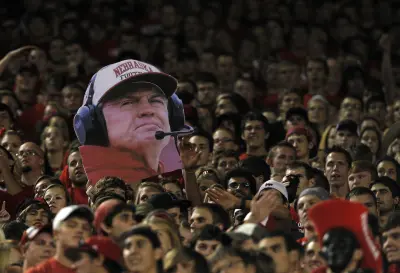
3. Tom Osborne
There is almost universal love and respect for Tom Osborne nationally. Very few people have anything negative to say about Osborne, and fans look at the consistency Osborne had at Nebraska, with 25 consecutive seasons of nine or more wins, with amazement.
The biggest heartbreak for Osborne was in the 1984 Orange Bowl against Miami. When Osborne could have tied and secured a share of national championship, he decided to go for two and the win.
When the Hurricanes turned away the Huskers’ two-point attempt, the team that most heading into the game felt was the greatest team in history up to that point and had embraced being college football’s ‘Goliath,’ turned into one of the most respected teams for the courage their coach and team had to go for the win and force a decision, instead of going for the tie and leaving doubt who was the better team with no decision.
In 1993, Osborne tangled with another beloved coach — Florida State’s Bobby Bowden — for the national championship. And the heartbreak of watching the Seminoles respond after taking a 16-15 with 1:16 to go in the game to take an 18-16 lead with 21 seconds to go and missing a field goal to the left as time expired left many fans wondering if Osborne would ever win the national championship.
The following year in the Orange Bowl against No. 3 Miami Hurricanes, the narrative through NBC broadcast led by Tom Hammond and Cris Collinsworth was the elusive national championship chase for Tom Osborne.
When the game became Nebraska’s, the serenation of superlatives for Osborne went on and on, and it was much deserved.
After his retirement in 1997, capping a career winning three national championships in four seasons with a record of 60-3, the man of few words and the unassuming Tom Osborne moved on with his life’s work.
Osborne went on to serve three terms in the U.S. Congress in the House of Representatives, including winning once unopposed. After losing a tight race to become governor, he would return as athletic director at Nebraska, and was an integral part of getting the Huskers into the Big Ten.
In 2019, on the 150th anniversary of the birth of college football, ESPN named Osborne its fourth greatest coach ever, and very few disagreed with the ranking.
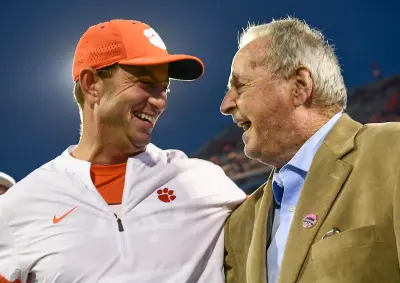
2. Bobby Bowden
When you think of Bobby Bowden, the first thing that comes to your mind may be his mixture of faith and football, the word “dadgum,” or simply his charm and authenticity.
For fans, when Hollywood made the film We Are Marshall, a feature film chronicling the disaster and recovery involving the Marshall University football program, there are some scenes that could be construed as Hollywood “romanticizing” the episode, but those who knew and followed Bowden would probably tell you they were true.
Bowden always had a great perspective on life, and his devotion to his family, football, and faith always shined through.
When he arrived at Florida State in 1976, the Seminoles had won four games the previous three seasons. In his first season at the helm in Tallahassee, they won five games. That was the only losing season during the entirety of his tenure at the helm of the Florida State program.
Bowden decided he wanted to build a juggernaut. He took Florida State on the road and lived with the mantra “Anyone, Anywhere, Anytime.” Nothing personified that more than five consecutive road games in 1981, against Pitt (who had Dan Marino at quarterback), Nebraska, Notre Dame, Ohio State, and LSU. The Seminoles won three of those games.
As the Seminoles got stronger, Bowden remained the same classy and approachable college football coach. Fans would leave footballs and helmets on the Bowden property, and he would sign every single item every night.
In 1993, the Seminoles’ national championship hopes were seemingly dashed after losing “The Game of the Century,” at Notre Dame. But Boston College upsetting Notre Dame a week later gave the Seminoles another shot at the national championship.
Florida State matched up with Nebraska in the Orange Bowl, where Bowden took on another hard-luck coach in Tom Osborne for the national championship.
The Seminoles had to claw back in the final minute to take a 18-16, the Cornhuskers didn’t make it easy as they drove the field for a chance to win on a 45 yard field goal. As Bowden watched Nebraska’s kick sail wide, something with which he was eminently familiar, he knew how Osborne was taking it. Both men had felt the sting of heartbreak before, and the crazy final minute of the game was apropos of both men’s fight for their first elusive national championship.
After the win, Bowden’s name had more cache on the national stage, and he became beloved for his Southern charm and charisma.
His ads became famous for Burger King:
Or the “Peggy” campaign for Discover with his “dadgum charges.”
Bowden’s authenticity as a person, along with his devotion to his faith, family, and football endeared him to fans everywhere. Even the most contentious rivals had the utmost respect for Bobby Bowden.
The way Bowden carried himself on and off the field has endeared him to fans everywhere and will continue well into the future for years to come, a coach eerily similar to his model of family, faith, and football is Clemson’s Dabo Swinney – another coach very few have anything bad to say but have the ultimate respect for.
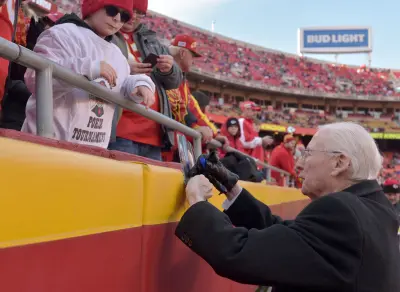
1. Bill Snyder
The Miracle In Manhattan.
What Bill Snyder did for Kansas State is well chronicled, but the respect and love he has earned around the sport — from his peers in coaching to the fans to the media — have him as the most beloved coach in the last 30 years.
Barry Switzer said in Sports Illustrated in 1998, “Bill Snyder isn’t the coach of the year, and he isn’t the coach of the decade. He’s the coach of the century.”
To understand the history of Kansas State prior to Bill Snyder’s arrival, the program had been to one bowl game: the 1982 Independence Bowl, a game they had lost to Wisconsin 14-3.
They had won four total conference championships, three of which were in the Kansas Intercollegiate Athletic Association during the first decade of the 20th Century, and they took home a Big 6 conference championship in 1934.
Leading up to the 1989 season, Kansas State was 0-21-1 in the previous two seasons.
Snyder built the Kansas State program from literal excavation and building the foundation to a program that spent 108 consecutive weeks in the AP Top 25 (that is still in the Top 20 all-time) and won 11 or more games in six of seven seasons.
“When we first went there, everyone continued to try to convince the coaching staff, all of us, that we wouldn’t win,” former Kansas State defensive coordinator Bob Stoops said. “I never doubted it for a minute. I knew Coach Snyder knew the formula.”
Fans everywhere have a universal love and respect for Snyder, he may not have been charismatic like the other coaches on the list, but the job he did and the culture he created in Manhattan endears him to fans everywhere, and everyone has love for a coach who took a program from literal absolute nothing into a program who can compete against national powers.
Snyder had “16 Wildcat Goals For Success.” Among them was unity, unselfishness, and commitment. All values that are embodied in a stadium that now bears his name: Bill Snyder Family Football Stadium. His legacy is one of commitment to the community, family, and being unselfish, something that will carry the Kansas State community far into the future and in the hearts of fans everywhere.
